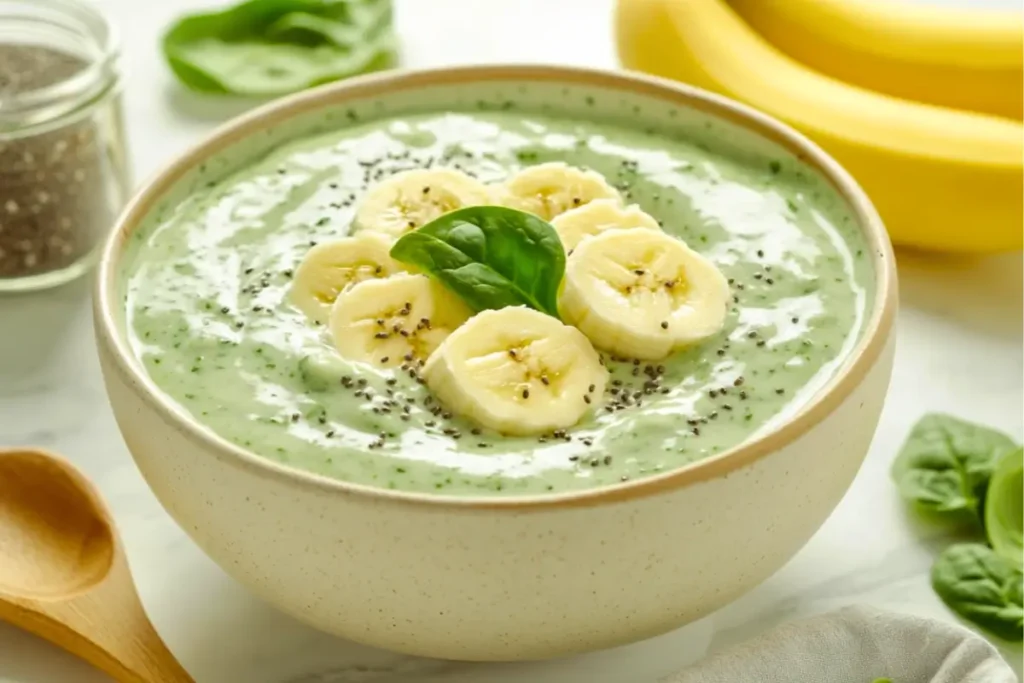Are you tired of starting your day with a grumbling stomach or an uncomfortable feeling that seems to follow you all morning? If you have Irritable Bowel Syndrome (IBS), you’re not alone in this struggle. Finding a good IBS breakfast can feel like trying to solve a puzzle with too many missing pieces. But don’t worry—I’m here to help you figure it out! In this article, we’ll break down everything you need to know about building an IBS breakfast that keeps your digestive system happy and your mornings stress-free.
Understanding Irritable Bowel Syndrome (IBS)
What is IBS and How Does it Affect the Digestive System?
Let’s start with the basics: IBS, or Irritable Bowel Syndrome, is a common condition that affects the large intestine. It’s like your gut is a diva with a mind of its own—it overreacts to certain foods, stress, and even your daily habits. Symptoms include bloating, gas, abdominal pain, diarrhea, or constipation. Sounds fun, right?
What’s frustrating about IBS is how unpredictable it can be. One day, your gut might tolerate certain foods, and the next, those same foods could leave you doubled over in discomfort. That’s why understanding how your digestive system responds to different meals—especially breakfast—is crucial for managing this condition effectively.
Common Symptoms and Triggers of IBS
IBS symptoms can pop up unpredictably, and the list of triggers is unique for everyone. However, there are some usual suspects: fatty foods, caffeine, artificial sweeteners, and certain fruits and veggies high in FODMAPs (Fermentable Oligosaccharides, Disaccharides, Monosaccharides, and Polyols). Basically, these are fermentable carbs that your gut doesn’t digest well, leading to discomfort.
Stress also plays a sneaky role. Ever notice your stomach acting up before a big event or after a rough night’s sleep? That’s your IBS reacting to emotional and physical stress. This condition thrives on chaos, but the right breakfast can help bring a little calm to your mornings.
The Role of Diet in Managing IBS
Here’s the good news: while IBS can’t be cured, it can be managed with the right diet. What you eat (and avoid) plays a huge role in keeping those symptoms at bay. Breakfast is a great place to start because it sets the tone for your digestive system for the entire day. Think of it as giving your gut a pep talk before sending it off to work.
Emphasizing the importance of an IBS breakfast, it’s crucial to include foods that are gentle on your gut while still being nutritious. Consider options like oatmeal, eggs, or smoothies that incorporate low-FODMAP fruits and vegetables. This way, you can enjoy a delicious meal without the discomfort.
“A balanced breakfast for IBS can be the difference between a productive day and hours of discomfort.”
Importance of a Good Breakfast for IBS Management

How Breakfast Impacts IBS Symptoms
Ever heard the phrase, “Breakfast is the most important meal of the day”? For those with IBS, it’s not just a saying—it’s the truth. Eating a well-balanced breakfast helps jumpstart your metabolism and encourages smooth digestion. Skipping breakfast or choosing the wrong foods can send your gut into a tailspin, leaving you feeling bloated or running to the restroom.
Imagine your gut as a car engine. Breakfast is like the fuel it needs to run smoothly. Without it, your digestive system sputters and struggles, which can exacerbate IBS symptoms. A thoughtful, IBS-friendly breakfast provides your gut with the gentle nudge it needs to handle the day ahead.
Key Nutrients to Include in an IBS-Friendly Breakfast
So, what should you eat? Look for foods that are low in FODMAPs, easy to digest, and provide a good balance of fiber, protein, and healthy fats. For example:
- Soluble fiber from foods like oatmeal or bananas to keep digestion steady.
- Lean proteins such as eggs or tofu to fuel your day without irritating your gut.
- Healthy fats like almond butter or avocado in small amounts.
These foods not only nourish your body but also work harmoniously with your digestive system. Soluble fiber, for instance, is like the calming friend in your gut, slowing things down and making digestion more manageable.
Foods to Avoid During Breakfast for IBS
Here’s a quick list of breakfast no-nos for IBS:
- High-fat options like greasy bacon or buttery pastries.
- Dairy products if you’re lactose intolerant (hello, bloating!).
- High-FODMAP fruits like apples and pears.
- Artificial sweeteners found in sugar-free syrups or diet yogurts.
Avoiding these can save your gut from a lot of unnecessary drama. For example, many people with IBS find that even a seemingly innocent glass of milk can stir up trouble. If in doubt, stick with lactose-free alternatives to play it safe.
IBS-Friendly Breakfast Ideas

Low-FODMAP Breakfast Options
Low-FODMAP breakfasts are a lifesaver for managing IBS symptoms. Try these ideas:
- Overnight Oats: Use rolled oats, almond milk, chia seeds, and top with low-FODMAP fruits like blueberries.
- Scrambled Eggs with Spinach: Cooked in a little olive oil, this is a protein-packed option.
- Smoothie Bowls: Blend lactose-free yogurt, a banana, and some spinach for a refreshing start.
Not only are these options quick and easy, but they’re also customizable. You can mix and match ingredients to suit your taste and dietary needs. Plus, they’re perfect for those rushed mornings when you barely have time to sip your coffee.
Table: Nutrition Facts for a Low-FODMAP Smoothie Bowl
| Ingredient | Quantity | Calories |
|---|---|---|
| Lactose-Free Yogurt | 1/2 cup | 80 |
| Banana | 1 medium | 105 |
| Spinach | 1 cup | 10 |
High-Fiber Breakfast Choices for IBS-C

If you struggle with IBS-C (constipation), fiber is your best friend. Soluble fiber can help soften stools and keep things moving. Oatmeal topped with strawberries or a chia pudding made with almond milk can do wonders for your digestion.
But remember: balance is key. Too much fiber, especially insoluble fiber, can make things worse. Stick to soluble sources like oatmeal and avoid fibrous skins on fruits until you know how your gut reacts.
Protein-Packed Breakfasts for IBS Management
Protein helps keep you full and satisfied without triggering IBS symptoms. Try a boiled egg with gluten-free toast or tofu scramble with herbs for a savory twist. Just keep portion sizes moderate to avoid overwhelming your stomach.
If you’re feeling adventurous, a slice of smoked salmon on a rice cracker with a smear of lactose-free cream cheese can be a gourmet treat that’s still gentle on your gut. It’s proof that IBS-friendly breakfasts don’t have to be boring!
Common Breakfast Mistakes for IBS and How to Avoid Them
Even with the best intentions, it’s easy to make mistakes when planning an IBS-friendly breakfast. These slip-ups can turn a peaceful morning into a digestive nightmare. Let’s talk about some common errors and how you can avoid them to keep your gut happy.
Skipping Breakfast and Its Impact on IBS
We’ve all done it—skipping breakfast because we’re running late or just not feeling hungry. But if you have IBS, this can be a big mistake. Skipping breakfast means your digestive system starts the day empty and unprepared, which can lead to irregular bowel movements or even worse symptoms later in the day.
Think of your gut as a clock that needs to be wound every morning. Breakfast is that gentle wind-up. Even if you’re not ravenous, something light like a banana or a slice of gluten-free toast with almond butter can make a world of difference. It’s about giving your body a little kickstart without overwhelming it.
Overeating or Choosing High-Fat Foods in the Morning
On the flip side, going overboard with a huge breakfast or greasy options can also spell trouble. High-fat foods like buttery croissants or bacon are tough on digestion, often leading to cramping, bloating, or an upset stomach.
Instead of a heavy feast, aim for balance. For example, try a bowl of oatmeal topped with a small handful of nuts and a drizzle of maple syrup. It’s satisfying without overloading your gut.
“Moderation is key when it comes to breakfast—think of it as fuel, not a food marathon.”
Troubleshooting IBS Symptoms After Breakfast
What happens if you still experience symptoms after eating? Don’t panic. IBS is unpredictable, but there are steps you can take to manage post-breakfast discomfort.
What to Do if You Experience Bloating After Breakfast
Bloating is one of the most frustrating IBS symptoms, especially when it strikes after breakfast. If this happens, consider the following tips:
- Check what you ate—did it include high-FODMAP ingredients like apples, onions, or dairy?
- Drink a soothing cup of peppermint or ginger tea. Both can help reduce bloating and calm your stomach.
- Go for a short walk to help get your digestive system moving. Gentle activity often works wonders.
If bloating is a regular issue, try keeping a food diary to track what might be triggering it. Over time, you’ll start to see patterns that can help you avoid problem foods.
Tips for Managing Post-Breakfast Discomfort
Sometimes, discomfort isn’t just bloating—it could be cramping, urgency, or even fatigue. Here are a few additional strategies to keep in mind:
- Eat slowly. Gulping down food can introduce extra air into your digestive system, making symptoms worse.
- Avoid cold foods immediately after waking up. Instead, opt for warm meals like oatmeal or scrambled eggs to ease your stomach into the day.
- Stay hydrated, but avoid chugging large amounts of water with your meal. Small sips are best.
Remember, IBS management is a marathon, not a sprint. Small, consistent changes to your morning routine can add up to big improvements over time.
Tips for Creating a Personalized IBS Breakfast Plan
No two people with IBS are exactly alike, which is why personalization is so important. Building a breakfast plan tailored to your specific needs can help you take control of your symptoms and start your day on the right foot.
Keeping a Food Diary to Identify Triggers
If you don’t already keep a food diary, now’s the time to start. Write down everything you eat, along with any symptoms you experience afterward. Over time, patterns will emerge, and you’ll start to see which foods are safe and which ones are troublemakers.
For instance, you might notice that oatmeal with almond milk works great, but adding honey triggers bloating. By tracking these details, you can fine-tune your breakfasts to suit your body’s needs.
Consulting with a Dietitian for IBS Management
If you’re feeling overwhelmed, don’t hesitate to seek professional guidance. A dietitian who specializes in IBS can help you create a breakfast plan that aligns with your preferences and lifestyle. They can also suggest recipes, portion sizes, and tips to manage symptoms effectively.
“An experienced dietitian is like a GPS for your gut—they help you navigate the twists and turns of IBS with confidence.”
FAQs About IBS and Breakfast Choices
Can Coffee or Tea Be Part of an IBS-Friendly Breakfast?
Ah, coffee—the morning staple we all love. But is it safe for IBS? The answer depends on your body. For some, coffee’s caffeine content can stimulate the gut too much, leading to urgency or diarrhea. If this sounds familiar, consider switching to decaf or herbal tea like peppermint or chamomile, which are gentler on the stomach.
If you can’t imagine starting your day without coffee, try limiting it to one small cup and pair it with a meal to reduce its impact.
Are Dairy Products Safe for IBS Sufferers?
Dairy is a tricky one. Many people with IBS are also lactose intolerant, meaning traditional milk, cheese, and yogurt can cause bloating or cramps. The good news? There are plenty of lactose-free and plant-based alternatives that are just as tasty.
For example, swap regular milk for almond or oat milk, and choose dairy-free yogurts made with coconut or soy. These options are lower in FODMAPs and much kinder to your gut.
How to Ensure Variety in an IBS Breakfast Plan?
Let’s be honest—eating the same breakfast every day can get boring fast. To keep things interesting, rotate your options throughout the week. Here’s an example:
- Monday: Overnight oats with blueberries.
- Tuesday: Scrambled eggs with spinach and gluten-free toast.
- Wednesday: Smoothie bowl with lactose-free yogurt and banana.
- Thursday: Chia pudding topped with strawberries.
- Friday: Tofu scramble with a side of sweet potato hash.
With a little creativity, your breakfasts will never feel repetitive!
Boost Your IBS Breakfast Ideas
Check out our Low FODMAP Breakfast guide for gut-friendly options, or try the Purple Sweet Potato Breakfast Recipes for a nutritious twist. For spreads, our tips on Low FODMAP Peanut Butter are a perfect match!
Final Thoughts: Building a Healthy Breakfast Routine for IBS
Building the perfect breakfast for IBS doesn’t have to be complicated. By understanding your triggers, focusing on low-FODMAP foods, and making adjustments based on your body’s needs, you can start your day with confidence and comfort.
Remember, it’s all about balance and personalization. Whether you’re enjoying a warm bowl of oatmeal or experimenting with a new smoothie recipe, the goal is to nourish your body without triggering symptoms. Take it one meal at a time, and soon enough, those stressful mornings will be a thing of the past!
Here’s to healthier, happier mornings—and a gut that’s finally on your side! 😊


